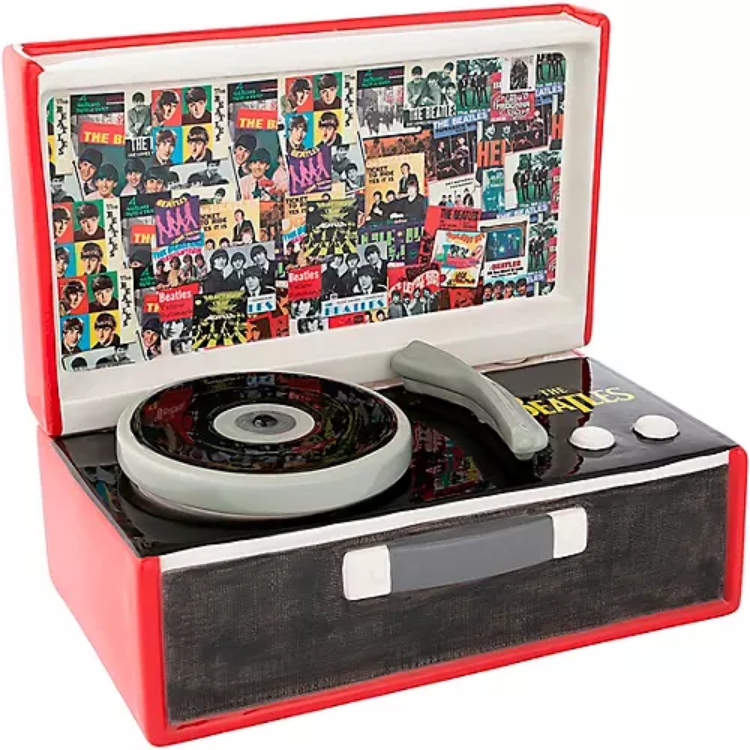- Register
- Log in to Tune-In
- Wishlist (0)
-
Shopping cart
(0)
You have no items in your shopping cart.
Beatles News

1969 was a year full of change for Paul McCartney. In January, he recorded the Let It Be album and movie with The Beatles, and did his last live performance with them. In March of that year, he married his first wife, Linda Eastman, and adopted her daughter, Heather. Months later, the couple had their first child together, Mary McCartney. By all means, McCartney lived in domestic bliss. And then, his world turned upside down when John Lennon announced he was leaving The Beatles.
In his new documentary, Man on the Run, McCartney opened up about how hard the breakup hit him. It pulled him into a depression and left him doubting if he could ever write music again. He'd only ever written songs with Lennon and had been in The Beatles since he was 15. But thankfully, he wasn't alone in going through that. He had his wife, Linda, by his side, and she was the one to pull him out of the darkness. In return, McCartney wrote her one of the most beautiful love songs in history.
When John Lennon told his bandmates that he was leaving The Beatles, McCartney felt his entire world collapse. At Linda McCartney's suggestion, he moved his new family to a run-down farm he owned in Scotland to run away from the chaos of London details

The Jim Irsay Collection forms a chorus of cultural touchstones and chronicles one of the greatest collections of music, film and sports memorabilia and historic Americana ever assembled. Meticulously compiled over decades by the late philanthropist, passionate music lover and owner and CEO of the Indianapolis Colts, a portion of the proceeds of these sales will be donated to philanthropic causes supported by Jim Irsay during his lifetime.
This unparalleled collection weaves together some of the most significant people, literature and events of recent history: guitars and other instruments once played by all four Beatles, Eric Clapton, Bob Dylan, David Gilmour, Jerry Garcia, Kurt Cobain, Elton John, Prince, Johnny Cash, Janis Joplin, John Coltrane and Miles Davis; original manuscripts by Jack Kerouac, Jim Morrison and Steve Jobs; legendary sporting artefacts linked to Muhammad Ali, Jackie Robinson, Wayne Gretzky and Secretariat.
From March 2026, the collection will be offered across four major auctions, giving collectors the rarest of opportunities to become the next custodians of objects that have inspired generations and continue to shine as beacons of our shared creative legacy.
Location
Christie
details

Barry Keoghan has brought his work home as he rocked a Ringo Starr-style ensemble at London's Burberry show after a day filming a new Beatles biopic. The actor, 33, transforms into legendary drummer Ringo Starr for the upcoming Beatles biopic.
He will star in the flick alongside Paul Mescal as Paul McCartney, Harris Dickinson as John Lennon and Joseph Quinn as George Harrison.
And after a day filming in the capital city, he arrived channelling Ringo with a mariner cap, for the Burberry Autumn/Winter 2026 collection catwalk show. For the outing, he wore a purple and black plaid Burberry coat, which he paired with black trousers.
He completed his ensemble with black leather gloves, which featured an emerald chain, and a pair of black boots. Barry Keoghan, 33, has brought his work home as he rocked a Ringo Starr-style ensemble at London's Burberry show after a day filming a new Beatles biopic
For his Beatles role, Barry has been spotted growing out a beard and styled his hair in Ringo’s classic shaggy cut.
The Daily Mail revealed that the Beatles biopics will be filmed at London's iconic Abbey Road Studios, with production getting underway in November last year des details

The Beatles have produced hundreds of songs throughout their career as a band, along with an impressive catalog of solo work from each member, and there is no denying how most of their songs have shaped popular music, often being considered timeless classics. But with a number of songs recorded, there will always be a few that feel a bit subpar, a bit rushed, and sometimes slightly out of place on an artist’s otherwise legendary discography. Even a band as monumental as The Beatles had tracks they later considered “filler.” Not every song was regarded as a masterpiece by the band itself, especially by Paul McCartney in particular.
"Hold Me Tight" Was The Beatles' Attempt at Crafting Another Hit Single
By the time the band recorded their second studio album, With the Beatles, they had already established a name for themselves as a musical act to look out for. The album itself contains some of their early standout tracks, including songs like "All My Loving" and "Please Mr. Postman." It was also met with widespread critical praise and strong commercial success, with critics calling it an impressive follow-up album, especially complimenting the album’s more polished production and more mature s details
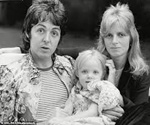
Paul McCartney's daughter Stella McCartney recalled how 'hurt' her late mother was by the bullying she faced from fans.
Linda McCartney was a founding member of her husband's band Wings, which launched in 1971, just a year after he announced he was leaving The Beatles.
McCartney's wife, a photographer by trade, did not always win over critics as she played keyboard and sang harmony in Wings.
In the new documentary Paul McCartney: Man on the Run, her daughter Stella, 54, discussed the impact the criticism had on her mother, who died of cancer in 1998 at age 56.
'She wasn't a cookie-cutter example of someone you put in a band. What they, and she especially, had to go through, like when they isolated her voice and ridiculed her? I mean, it breaks my heart,' the designer said in the documentary.
'I know that there was pain there. I knew she hurt. She wasn't like, cold,' Stella added.
Paul McCartney's, 83, daughter Stella McCartney, 54, recalled how 'hurt' her late mother Linda McCartney was by the bullying she faced from fans and critics; Stella pictured in 2025
Linda, who died of cancer in 1998 at age 56, was a founding member of her husband's band Wings, which launched in 19 details
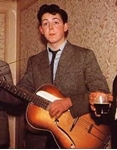
An unassuming Liverpool street went back in time on Monday as director Sam Mendes prepared to shoot scenes for his new anthology of Beatles films outside the childhood home of Sir Paul McCartney.
Mendes is currently working on an ambitious collection of films about the pioneering pop group and their emergence from Liverpool's subterranean Cavern Club to become the biggest and most influential band in the world.
Having already filmed raucous scenes in central London, the director and his team have relocated to Allerton and the modest street outside 20 Forthlin Road, McCartney's home for several years before signing his first record deal with The Beatles in 1962.
Built in 1949, the address was originally bought by McCartney's father Jim in 1955. He would remain their for a decade, until his son – by now a global star – bought him a new house in Heswell, a more prosperous part of the Wirral.
The terraced home, now a National Trust property, was a hive of activity as the street was cut off by traffic cones and diversions were created for oncoming vehicles.
With black tents and vintage cars lining either side of the road, production assistants were seen wheeling period-appropriate details
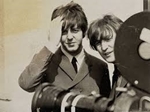
John Lennon delivered some of the most celebrated songs in music history, both during his time with The Beatles and throughout his solo career. Among his most enduring solo works are "Happy Xmas (War Is Over)," "Woman," "Jealous Guy," "(Just Like) Starting Over," "Give Peace a Chance," "Grow Old with Me," "Nobody Told Me," "Watching the Wheels," and arguably his most universally beloved composition, "Imagine." Yet among the many songs Lennon wrote, one held a particularly special place in the heart of Paul McCartney. That song is “Beautiful Boy (Darling Boy),” a deeply personal track from Double Fantasy, his fifth collaborative studio album with Yoko Ono.
John Lennon Wrote "Beautiful Boy (Darling Boy)" as a Tribute to His Son Sean
“I haven’t chosen any Beatles records, but if we had more than eight, I probably would have. I haven’t chosen any of my records so to sum up the whole thing I have chosen one of John Lennon’s from Double Fantasy, which I think is a beautiful song very moving to me. So, I’d like to sum up the whole thing by playing ‘Beautiful Boy.’”
The song reflects Lennon’s desire to protect his child from the world’s uncerta details

The Beatles sang a lot of songs about love and delivered many songs with the word “you” in the title in their early days. But as the 60s progressed, they started to branch out with their lyrics to keep in line with the psychedelic times.
These four songs defy easy description if you just focus on the narrative. But they nonetheless show off the ambition and ingenuity of The Beatles’ songwriters.
“I Am The Walrus”
John Lennon was starting to get fed up with people analyzing his song lyrics looking for deeper meanings between the lines. He decided to purposely send them way off out into the woods with a song that was mostly nonsensical. And yet, what brilliant nonsense “I Am The Walrus” turned out to be. Lennon raised the stakes on Dylanesque stream-of-consciousness writing, adding his love of Lewis Carroll’s wordplay and absurdist humor to a thesaurus-straining choice of words. Throw in a little bit of hippie-ish sentiment: “I am he as you are he as you are me/And we are all together.” Stir it all up and you end up with a surreal masterpiece where the wildness of the music is more than matched by the daring of the words.
“G
details

While Anna Sawai has been busy conquering TV and film, the Emmy-winning “Shōgun” star first got her start in show business as a member of the J-pop band FAKY. Now, Sawai is going back to her musical roots in the role of Yoko Ono in Sam Mendes’ forthcoming “Beatles” biopics.
“It was my dream to tell her story and I didn’t think it would come this quick,” Sawai told Variety at the Los Angeles premiere of Apple TV’s “Monarch: Legacy of Monsters” Season 2 on Thursday night. “There’s a version of her I feel people still don’t understand. And in this film, I think we’re going to be able to tell that side of the story.”
To prepare, Sawai has been busy reading everything she can about the artist and musician. “So much reading, oh my gosh,” she said. “So many books, so many videos, so many articles…She has so much artwork that also shows her personality.”
While on set in London, Sawai teases it’s been fun to hear the cast — Paul Mescal as Paul McCartney, Harris Dickinson as John Lennon, Joseph Quinn as George Harrison and Barry Keoghan as Ringo Starr — play the iconic ba details

It's 1969. The Beatles are trying to record what would become their final albums, and they're at each other's throats. Nothing is working. Then a visitor enters the studio, the keyboard player Billy Preston. On a whim, he sits down to join them for a song, and the mood totally changes.
LENNON: You've given us a lift, Bill. We've been doing this for days.
MARTIN: Did you catch what they said? You're in the group. You've given us a lift. We've been doing this for days. Preston saved those sessions, which is just one reason John Lennon called him the fifth Beatle. But Preston died in 2006. Younger generations barely know who he is. There's a new documentary that hopes to change that. It's called "Billy Preston: That's The Way God Planned It." I spoke with director Paris Barclay.
PARIS BARCLAY: I didn't know about his relationship to Beatles. I didn't know that he played with the Rolling Stones constantly. And as I started to do a little research, I discovered that not only was he a transcendent performer musically, but that his story, including even the tragic things that happened, can be sort of a cautionary tale for how we deal with genius and especially how the Black church deals with people who are diff details

They were awards given to The Beatles at the peak of their fame - but have been out of sight for 60 years.
Now the gongs, including one for their 1966 smash hit Paperback Writer – a number one in both the UK and US charts – are to go under the hammer this coming week. The commemorative discs are described as 'real rarities' and experts predict they'll be a hit with collectors - each selling for over £10,000.
The 7-inch silver disc for Paperback Writer was presented to the band by a weekly music paper in 1966 after the single's huge success.
The catalogue description released by Surrey-based Ewbanks Auctioneers, states: 'The Beatles received this award for the hit single 'Paperback Writer' released on the Parlophone label 10th June 1966, from the (then) prominent British weekly music paper 'Disc' (later Disc and Music Echo)'. Ewbanks said the award came 'at a pivotal point in the band's career, marking the end of live shows and touring and becoming a more experimental studio based creative powerhouse, a time when Brian Epstein's influence was fading, Beatle Boots, suits and head shaking were all in the past'. However, it was 'a time that many consider the peak of th details
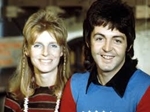
Paul McCartney’s new documentary revisits life after the Beatles and the formation of Wings. McCartney described seeing footage of Linda as “very emotional” and deeply personal. Lost home videos resurfaced, adding a special family touch to the film.
At the screening of his latest film, which explores his life after the Beatles and the formation of Wings, McCartney reflected with Us Weekly, “I think all the stuff with the kids and Linda is lovely to see. I mean, obviously, the Linda stuff was very emotional. She looks so beautiful. She’s so cool.”
He continued, “Me and Linda interacting is very special, because she’s not here. Seeing the kids little, ’cause they know they’re not little anymore … they’ve got kids of their own. Linda, the kids, me and John [Lennon], just these memories … it’s like a life flashing in front of me.”
According to the outlet, several of the photos and home videos featured in the documentary were taken by Linda, adding a special and deeply personal touch to the film. McCartney later admitted he had long believed the footage was gone for good and was stunned when it resurfaced. details

It sounds counterintuitive to suggest that The Beatles, the most celebrated band of all time, has forgotten songs, and even more so to suggest the group has forgotten No. 1 hits. In fact, interest in the Fab Four has remained incredibly high in the decades since the band broke up back in 1970. But as the years have passed, the popularity of individual songs within The Beatles' discography has fluctuated. If we look at the numbers of streaming platforms such as Spotify, we can see at the time of writing that some of the band's iconic singles, such as "Hey Jude" and "Let It Be" — both of which hit the top spot on the Billboard Hot 100 — continue to attract a huge listenership. Yet many of the most popular Beatles songs were not singles at all but album tracks that have aged particularly well, such as "Here Comes the Sun" and "In My Life."
With that in mind, we're revisiting five of the 20 Beatles singles that topped the charts in the United States but whose popularity has waned slightly within the band's discography. Don't get us wrong: These songs still have tens of millions of plays on streaming platforms (it's The Beatles, after all). But the truth is they no longer have a seat at the top table in terms of details

“It was John’s original inspiration, I think my melody, I think my guitar riff. That’s my recollection”: Lennon might have written the lyrics, but as McCartney remembers it, he “wrote the tune” to one of The Beatles’ greatest and most poignant songs.
Anyone looking to pinpoint the moment when The Beatles turned from pop idols into mature artists will inevitably hone in on their landmark sixth studio album Rubber Soul. Recorded over a four-week period, from 12 October to 11 November 1965, Rubber Soul is The Beatles’ first masterpiece, a hugely influential pre-psychedelia work that draws on folk, soul and pop.
Sonically the album signalled a major shift, as the band incorporated soul-style bass lines, fuzz bass effects, harmonium and sitar. But it also marked a transition in John Lennon and Paul McCartney’s songwriting, from pop singles to a more cohesive, mature, album-orientated style.
Much of this was due to the ongoing influence of Bob Dylan, the folk-rock jangle of The Byrds and soul artists on the Motown and Stax labels whose music The Beatles soaked up from radio stations across the US during the summer of 1965.
Then, of course, ther details

Paul McCartney had a famously stoic reaction to John Lennon's death in 1980. Lennon's son Sean Ono Lennon defends McCartney in the new documentary Man on the Run. McCartney's daughter Stella also reveals he did, in fact, have an emotional reaction to Lennon's death.
Just hours after John Lennon’s death, Paul McCartney was bombarded by reporters asking him for a reaction to losing his lifelong friend and bandmate.
The stunned McCartney, 83, famously offered a stoic response, nonchalantly telling the reporters, “[It’s a] drag, isn’t it?” in a clip that has been repeatedly analyzed by fans. Now, in a new documentary following McCartney’s life and career, Lennon’s son Sean Ono Lennon is opening up about why the singer’s reaction actually makes a lot of sense to him.
“I always notice the look in his eyes and the tone of his voice. Really felt like someone who was unable to process what was going on,” Sean says in the documentary Man on the Run (in theaters Thursday, Feb. 19 and Sunday, Feb. 22 only and out on Prime Video Feb. 27). “He just seemed almost robotic, which I think some people took possibly as coldness, but I never t details

